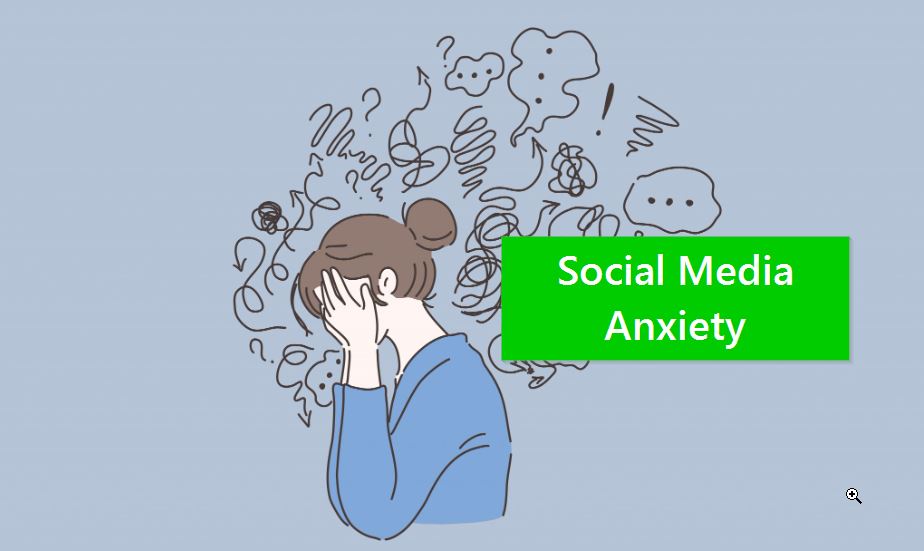Social media anxiety among kids is a growing concern . Explore practical tips and strategies to support children in managing the effects of social media on their mental health and well-being.
Introduction: Social media anxiety
Teens who use social media may experience stress due to their fear of missing out (FOMO).
Teenagers upload, snap, tweet, and text like crazy. Approximately 50% of teenagers use social media on a daily basis; for some, this entails checking platforms like Instagram, TikTok, or Snapchat hundreds or even thousands of times.
While many teenagers view making friends online as beneficial, social media use, particularly among preteen females, can have a negative impact on children’s mental health. Finding the boundary between positive and harmful interaction with social media may be challenging for parents.
You may do this by being aware of how your child utilizes different platforms, assisting them in developing self-awareness and assisting in striking a good balance between socializing online and offline.
Even while FOMO is a well-known indicator of social media anxiety, it can be challenging to distinguish between typical teenage angst and serious concerns. Many parents have seen their formerly gregarious kids become more and more reclusive as a result of their increased use of social media.
However, a clear reason has not yet been shown in a study exploring the possible association between rising smartphone and social media use and teen mental health diagnoses. However, the association is significant enough to advise parents to use caution while using social media, particularly if their children belong to a high-risk demographic.
Protecting your child may be as simple as keeping an eye on what your children are doing, the experiences they are having, and their feelings toward the people they are interacting with. Take action if you observe your children experiencing difficulties. For example, they may be always anxious after talking on the phone or staying up late texting.
Practical Tips for Social Media Anxiety
Discover practical tips for helping kids cope with social media anxiety. What you can do is as given below:
Observe:
Although social media stress is sometimes written off as trivial, social media is an integral part of many teens’ and adolescents’ social lives.
Be impartial
Doesn’t Snapchat seem a little silly? However, socializing with peers is a typical aspect of childhood growth for teens and adolescents. It meant spending hours on the phone with you. It means rainbow vomit, lots and plenty of it, for them. Recognize that they care about this.
Inspire them to live offline.
Children’s self-esteem can be undermined by FOMO, but the greatest protection is a strong sense of what makes them special, deserving, and valued. Encourage them to engage in activities such as sports, clubs, theater, volunteer work, or even virtual pastimes to help them cope with the ups and downs of social media anxiety.
Establish boundaries.
It’s crucial for parents to validate and listen, but they also need to establish some fundamental guidelines for when and where their children may use their phones and computers.
To start teaching youngsters to avoid the temptation of staying up late messaging, switch off phones an hour before sleep, and store them in your room. To ensure they don’t expect a response, you might advise them to let their pals know they’ll be signing off at a certain time.
Turn the emphasis.
Encourage children to concentrate on accomplishing anything if they are feeling overburdened by keeping up with everything social media-related on the internet.
Perhaps kids can develop their own games, make their own memes, or choreograph dances. Kids’ attention can be drawn to a feeling of achievement by encouraging them to use the creative features of social media platforms.
Employ social media configurations.
Every app has options to assist you in maintaining a low profile. You may silence individuals to temporarily detach from conversations, turn off your status so pals don’t know you’re online, and enter “ghost mode” to make yourself unfindable.
Certain applications even include time-limitation or break reminder capabilities. You may exercise some control over your use by using these settings, which can help reduce worry.
Pose open-ended inquiries
They don’t require you to find solutions to their issues. You may assist them in considering what is and isn’t working for them, though. You can attempt these questions:
- Are there any routines you would like to break? (For example, putting away your phone before sleeping.)
- What would occur if your phone was switched off? An hour, please? One day?
- Have you considered giving yourself a treat when you go a predetermined period of time without using your phone or social media? (Turn it into a game!)
- What are the advantages and disadvantages of utilizing Instagram and other social media applications?
- What would happen if you blocked or unfriend someone on social media who was causing you anxiety?
- Have you noticed that, depending on your mood that day, your responses to postings or messages change?
Conclusion
Lastly, never ignore the warning signs or symptoms of depression. There is therapy available for Social Media Anxiety and depression for your kid. Depression can lead to suicidal thoughts or even worse.
If you’re searching for a “Child Psychologist near Me,” TalktoAngel is a great option. Their highly trained and experienced Child Counselor may assist in helping your child overcome depression and improve their general wellbeing.
